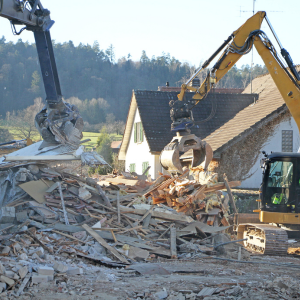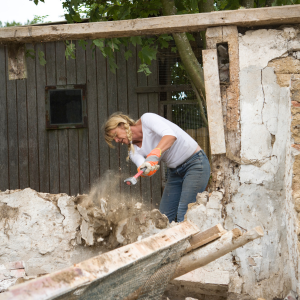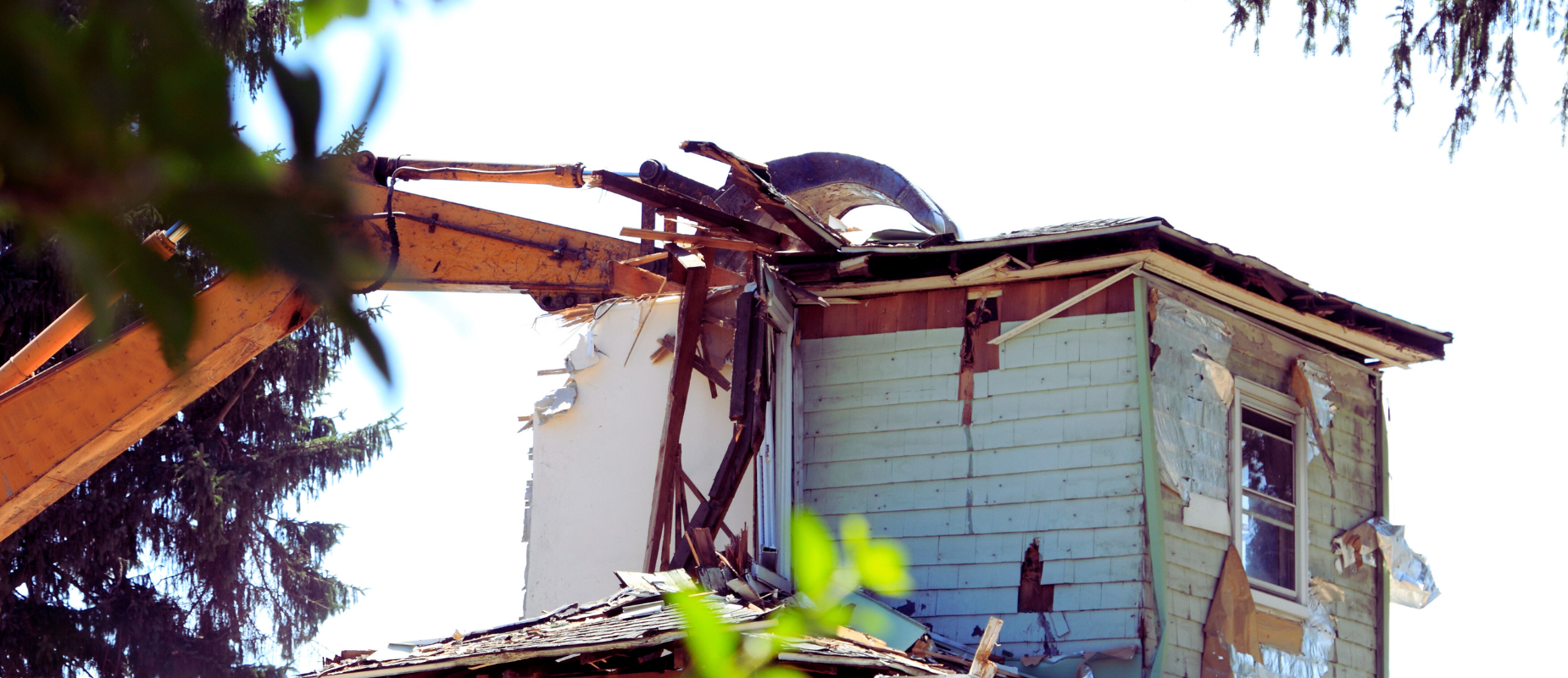
Can You Demolish a House with a Mortgage?
Are there any Legal Implications?
Owning a home with an outstanding mortgage can pose challenges and permit the owner to demolish their home, albeit with conditions. Particularly, around the skeletal home, the mortgage agreement is crucial, and it may pose significant alters to plans around home.
Understanding Mortgage Agreement Terms
The mortgage agreement clearly defines what the lender and borrower are to do. As is the case with most loans, the borrower must seek the lender’s consent for significant undertakings like demolition. Not getting approval for the said actions, however, may lead to unfavorable outcomes, including legal and contract disputes. Homeowners are more prudent mortgage borrowers when they seek lender permission to destroy their homes and assess any consequences on the mortgage contract.
The Role of the Lender During Demolition
Most loans are used to fund building construction, and for the lender, it’s an investment. As with most loans, the borrower must seek the lender’s consent for significant undertakings like demolition. In any case, the lender examines its obligation to the borrower around sufficient loan security and the property’s worth. In any case, legal construction requires homeowners to seek lender permission to demolish their homes, for they are mortgaged assets.
How Does Demolition Affect Property Value and Equity?

Demolishing a house impacts its value and the equity a homeowner has in the property. It’s crucial to grasp these transformations for sound planning in finances and real estate.
Assessing Worth After a Property Has Been Demolished
Demolished property needs to be assessed for value again. This is a real estate appraisal to ascertain market value. This includes the desirability of the land, location, and potential future growth. Homeowners need to brace themselves for the new value of the property, and in all likelihood, the new value will be less due to demolition.
The homeowner’s equity and financial planning
Equity is the financial value the homeowner holds in the property. Demolishing a house results in negative equity if the parcel of land has a lower value. Home equity may be impacted, and thus, financial alterations should be made. There is a need for strategizing on equity and investment; in these cases, engaging financial consultants is advisable.
Homeowners who plan on demolishing a mortgaged property may wish to understand the legal and financial implications. Before taking any steps, let’s discuss the value, equity, financial standing, and converse value.
Steps Before Demolishing a Mortgaged Property
What Preparations Are Necessary?
Careful planning is key before demolishing a mortgaged property. Start by reaching out to your mortgage lender to discuss the demolition plans. You must secure approvals and understand any conditions they set. Obtaining necessary demolition permits is also essential, as these permits ensure you follow local regulations.
Review the legal steps involved in the demolition process and consider the municipal regulations and zoning pertaining to the demolition of a property. Planning in thorough detail helps you avoid legal practices that may complicate your project.
What Experts Should Be Consulted?

It’s important to consult experts before demolishing a mortgaged property. Begin by hiring licensed demolition contractors with the expertise needed for such projects. Real estate advisors can offer insights into market trends and the potential benefits of tearing down the property.
Legal experts are needed to comply with the legal issues that tend to arise. The company will prepare a quote, and in exchange for this, they will send someone to the site to evaluate the property and conduct site visits. Their skills will be highlighted by the challenges they identify and the plan they will develop for the safe demolition.
Consulting with experts will allow for well-thought-out strategies and mitigate the risks of demolition work on properties.
Can You Refinance or Modify Your Mortgage?

Refinancing or modifying a mortgage can improve one’s arrangements and manage finances. Refinancing involves paying off the initial mortgage for a new one, perhaps to take advantage of lower interest rates or a more favorable repayment period. You may want to consider this option if your home has gained significant equity or the prevailing interest rates have dropped. You will need to speak with mortgage refinancing professionals to determine if this option works for you.
Mortgage modification changes the conditions associated with the initial loan. This may involve changing interest rates, charging late fees, or extending the repayment period. It is common for individuals undergoing a financial crisis to avoid foreclosure on the property. If refinancing fails, you would need to contact your lender to find out if mortgage modification is an option for you.
If you are demolishing or taking down your home, refinancing or modifying your mortgage will pose very interesting challenges. Financing a demolition in Texas comes down to understanding the dominion standards and lender requirements of the area. Consult with professionals who are well-versed in Texas legal and financial matters and ensure you know the relevant requirements.
Are There Specific Loans Available?
The loan programs for demolishing and rebuilding allow for the financing of both the demolition and new construction of a building. It is essential to understand the loan stipulations associated with these options.

Mortgage loans in Texas, such as the Texas demolish and rebuild, provide the capital needed for such projects. Generally, loans for teardown properties require a project, cost, and budget estimate. Collaborate with a mortgage loan officer to ensure you comply with all the terms to get approval for the requested loan.
Tear down and rebuild mortgage options might have construction and demolition costs consolidated as a single loan. Different lenders have different terms, so assess and differentiate thoroughly.
It may be helpful to seek the opinions of real estate and finance experts who understand your area. For example, We Buy Houses For Cash Dallas offers a unique perspective on the local real estate market that may help you formulate different strategies.
How to Manage Costs and Risks in Demolition
What Costs Should I Consider?
Effective house demolition planning should capture costs. Costs vary by region, property dimension, and type of project. Other expenses to clear a site include the procurement of heavy equipment, the demolition permit, and the subsequent collection and disposal of site waste.
The cost of demolishing a house in Texas varies in the major metropolitan areas, primarily due to the prevailing legal and disposal costs. These factors demonstrate why budget planning is essential in a demolition project, especially in the Texas region.
What Steps Can Be Taken To Reduce Risk?

Planning must be done in a legal and safe framework to mitigate risks in a demolition project. Getting the right insurance coverage is important in the project. Not only does insurance mitigate risks, but well-structured insurance offers blanket coverage for demolition projects.
Understanding Texas environmental regulations for demolition is vital to staying compliant with state laws. This includes safely managing hazardous materials to avoid legal problems.
Demolishing a house in Texas includes legal steps such as complying with zoning laws and obtaining permits. To mitigate such risks, it is advisable to ascertain the range of regulations that apply to the project and other dimensions of legal compliance.
Demolition is a risky business. At We Buy Houses For Cash Dallas, we tailor our cutting-edge consultations to ensure swift project completion.
What Are the Post-Demolition Considerations?
How to Plan for Rebuilding?
With the shift to sustainable technologies, there have been many advancements in building and construction. Digitalization and the rise of IoT facilities offered the capability to develop immeasurable design variables. Working on the point above, the property can be defined from a design and construction perspective, varying in use, be it residential, commercial, or mixed-use. This ultimately acts as the working foundation for the coming stages.

One of the most famous building and demolition companies in Dallas, Texas, has a very simple building and construction policy that is quite soft spoken. All aspects and components of the building and construction planning should be able to firmly defined and strongly delineated within the internal and external borders of the construction techniques and design frame. This very soft-spoken, simple policy has led to global business legitimacy with a relatively low amount of complexity, thus solving the simplicity rigidity dilemma all businesses face.
Begin arranging for the necessary permits. To avoid legal issues, follow local zoning laws and building codes. Contact local authorities early to learn about requirements and any restrictions on your plans. This prevents delays and extra costs due to non-compliance.
What Are the Tax and Legal Outcomes?
Knowing the tax implications and legal outcomes after demolition is vital. The demolition might change your property taxes, affecting your financial planning. Consult a tax expert to see how these changes impact you.
Follow zoning laws carefully, as they dictate what constructions are allowed. Zoning affects design plans and possibly even the building materials. Check that your post-demolition plans meet zoning requirements to avoid costly changes later.
Building codes must be strictly followed for safety and durability. Compliance is legally required and ensures your property’s longevity and safety.
Talk with your mortgage lender about any effects demolition and rebuilding might have on existing agreements. Lenders may have conditions or offer helpful advice for your rebuilding efforts.
Addressing these issues thoroughly sets a strong base for a successful rebuilding effort.
Read on to learn how to sell a house in Texas. The tips and guidelines are applicable statewide, including cities like Dallas, El Paso, Houston, Austin, San Antonio, Fort Worth, and nearby regions. For personalized assistance, Contact Us at (469) 765-3669.


